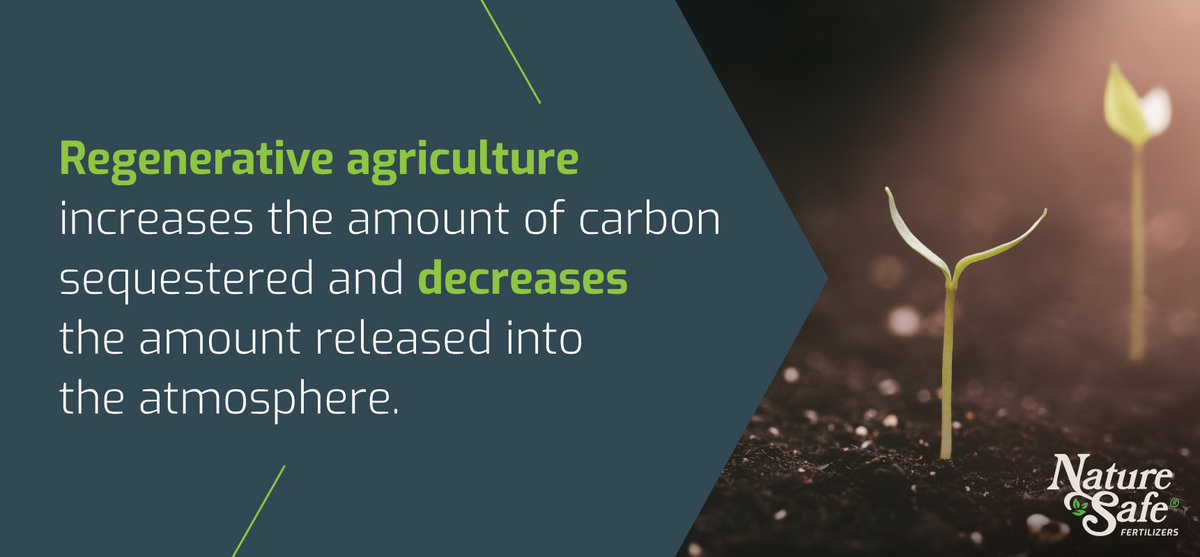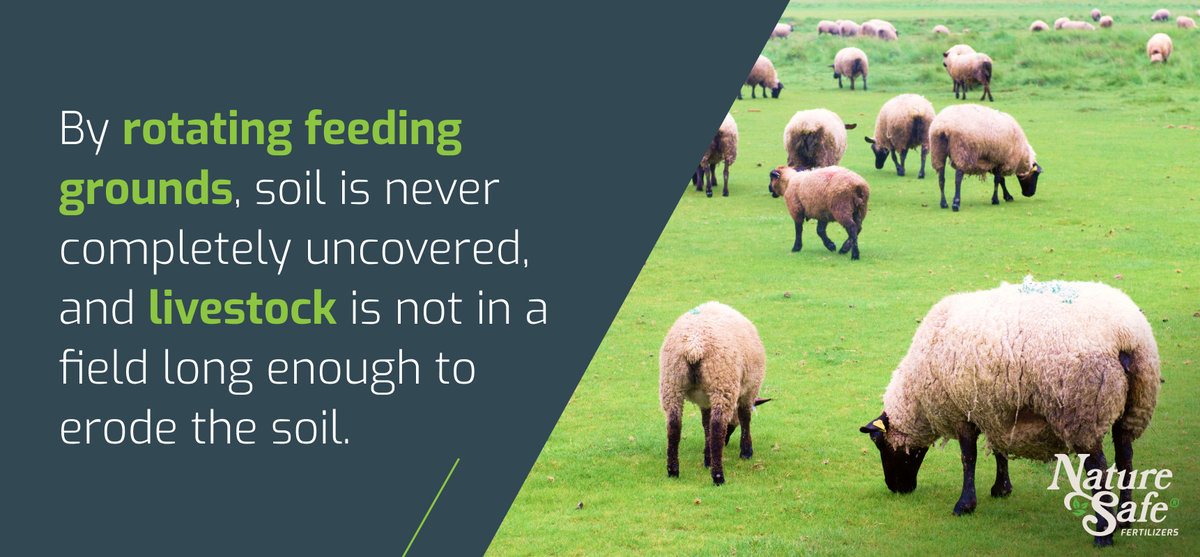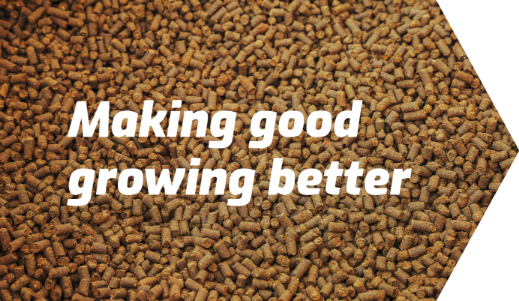
The 6 Top Benefits of Choosing Regenerative Agriculture
How Changing the Way Agriculture Works Can Have Far-Reaching Impacts
- Posted: May 19, 2022
- Author: Nature Safe
- Crop
Regenerative agriculture is a more natural planting practice that incorporates the ecosystem surrounding farmlands and emphasizes the health of the soil above all.
The most important regenerative practices include:
- Avoiding "Resting" the Soil
- Cover Cropping
- Gracing and Rotating Livestock
- Crop Diversification
- Composting and Natural Fertilization
Farmers and ranchers can get Regenerative Organic Certified by following these principles and implementing the agreed-upon practices. You may be wondering, however what the benefits are of making the switch to regenerative agriculture:
1. It Decreases CO2 in the Atmosphere
One of the primary advantages of regenerative agriculture is how much impact it can have to reverse the climate crisis. Through photosynthesis, plants capture CO2 from the air and release oxygen. Where does that CO2 go? Into the soil! This is called carbon sequestration.
Several regenerative agriculture practices increase the amount of carbon sequestered and decrease the amount released into the atmosphere. One of these is the addition of cover crops in a field. This provides greater ability to put carbon in the soil. Alternative, consistently having a crop planted achieves the same outcome.
One of the main principles of regenerative agriculture is minimizing soil disturbance. Tilling the soil releases the soil organic carbon, or SOC, and puts it back in the atmosphere. The equipment needed to till also is responsible for a significant amount of greenhouse gasses.
According to the National Resource Defense council, regenerative farming has the potential to sequester 2.5 billion tons of CO2 globally.

2. Regenerative Agriculture Saves Money
Another thing that minimizing soil disturbance does is save planters and growers money. Without tilling the soil, the cost of upkeep for fuel and machinery is no longer relevant.
Additionally, adopting regenerative practices like rotating grazing livestock has many benefits. Two of the main perks include lowering feed costs and herbicide costs, as they will naturally take care of the weeds.
Organic regenerative farmers also save on insecticide as they encourage the activity of the symbiotic relationship between the soil and critters. The National Center for Biotechnology Information found that chemically-treated farmland actually had more pests than regenerative farms.
3. It Yields More Crops & Healthier Food
That same study from NCBI found a positive correlation between profitability and nutrients in the soil. Healthy soil, the main pillar of regenerative agriculture, yields more numerous, and more robust crops.
There is also evidence that suggests not only are these crops in good health, but they are more nutritious as well. One study found that foods grown using regenerative methods were higher in certain vitamins and minerals than their conventionally grown counterparts.
4. Detrimental Livestock Effects Decrease
Livestock management is responsible for half of greenhouse gasses created by agriculture. Hungry herbivores can over-graze and leave fields barren and eroded.
By rotating feeding grounds, you limit the damage livestock can do, and even improve the land.
There are a number of reasons why this works. For starters, by moving the cattle or other livestock around, the herd cannot eat plants completely, which would kill the roots.
Thus, the soil is never completely uncovered, and the herd is not in a field long enough to erode the soil. Their manure fertilizes the soil naturally, and introducing multiple species will attract a give rise to a variety plants and attract an array of bugs and microorganisms.
Regeneration International says that integrating livestock in this way can have significant effects in just three years.

5. Healthy Soil Protects from Droughts and Floods
Soil full of microorganisms and nutrients have an incredible ability to regulate water retention. When the soil holds the right amount of moisture, they are resistant to draughts and even floods.
Healthy, undisturbed soil retains moisture far better than unhealthy soil, and it allows excess water to flow out and back into the ecosystem. So soil health does not only benefit the farm, but the community and surrounding area as well.
6. Regenerative Agriculture Increases Biodiversity
The term “biodiversity” might not mean much to most people, but it should mean a lot to everyone who works with outdoor resources. Increased biodiversity, or the amount of different species, means a healthier ecosystem.
Soil is full of symbiotic relationships, which are interactions between species that are mutually beneficial. The plants and the microbes, fungus, and even earthworms work together to nourish each other.
This benefit extends above ground as well. Planting different types of cover crops attract different kinds of bugs and animals that are vital to the area surrounding the farmland.
The Benefits Add Up
It may take several years to reap the benefits of regenerative agriculture if you are switching from conventional to organic. Rest assured, however, that the benefits far outweigh the costs. The impacts of organic regenerative agriculture reach beyond just pockets of farming communities to the rest of the country and even the world.
Technically, a farm could be regenerative without being organic, but it would go against the core ideas of regenerative agriculture. In any case, assisting depleted soil naturally may give it the nudge it needs in the right direction.
If you are considering adopting regenerative practices, growing organic crops, or simply want to learn how to grow healthier crops, we are here to support you. Our natural organic fertilization products are proudly sold across the United States, and our expert team will help you find your nearest location or select products tailor-made to feed your farm’s soil. Call us at 800-743-7413.
